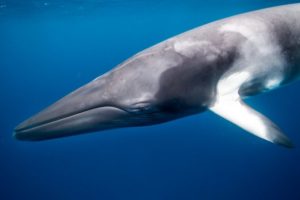
Second Year In A Row: Icelandic Whales Will Not Be Killed By Hunters This Year
The International Fund for Animal Welfare announced that 2 whaling companies in Iceland have decided to no longer hunt whales this summer.
This means that Iceland will not hunt for whales for the second year in a row.
Patrick Ramage, the director of the International Fund for Animal Welfare’s Marine Conservation Program, said:
It is now clear that what we are seeing is the end of Icelandic whaling, which is good news for whales, good news for Iceland and good news for marine conservation worldwide. IFAW salutes and commends our longtime partners and friends in Iceland who have been working to end the cruel and wasteful killing of fin whales and minke whales in Icelandic waters and to finally end consumption of whale meat by international tourists.
During a media interview, Kristjan Loftsson, the Chief Executive of Hvalur, the only company that is involved in Iceland fin Whaling, said that he would not whale this year because of the competition and current coronavirus restrictions set by Japan.
Hvalur has been whaling in Iceland since 1948 and they did not stop when the International Whaling Commission placed a global moratium on commercial whaling in 1986.
From 1948 to 1989, the company caught an average of 220 fin whales a year.
In 2018, Hvalur killed 146 fin whales, many of which were pregnant females.
Gunnar Bergmann Jonsson, the Managing director of the Minkey Whaling Company IP-Utgerd, said that they will be putting an end to their whaling activities for good.
Fin Whales are killed in Iceland every year so they could be exported to Japan.
Minke whales on the other hand are killed to feed the tourists in the country.
Since 2003, around 1,500 minke whales have been killed in Iceland.
The “Meet Us Don’t Eat Us” Campaign was launched by the International Fund for Animal Welfare and IceWhale, the Icelandic Whale Watching Association, in the summer of 2011 in Reykjavik, Iceland.
So far over 500 volunteers from 30 countries have participated in the project, which runs through the summer months in Reykjavik.